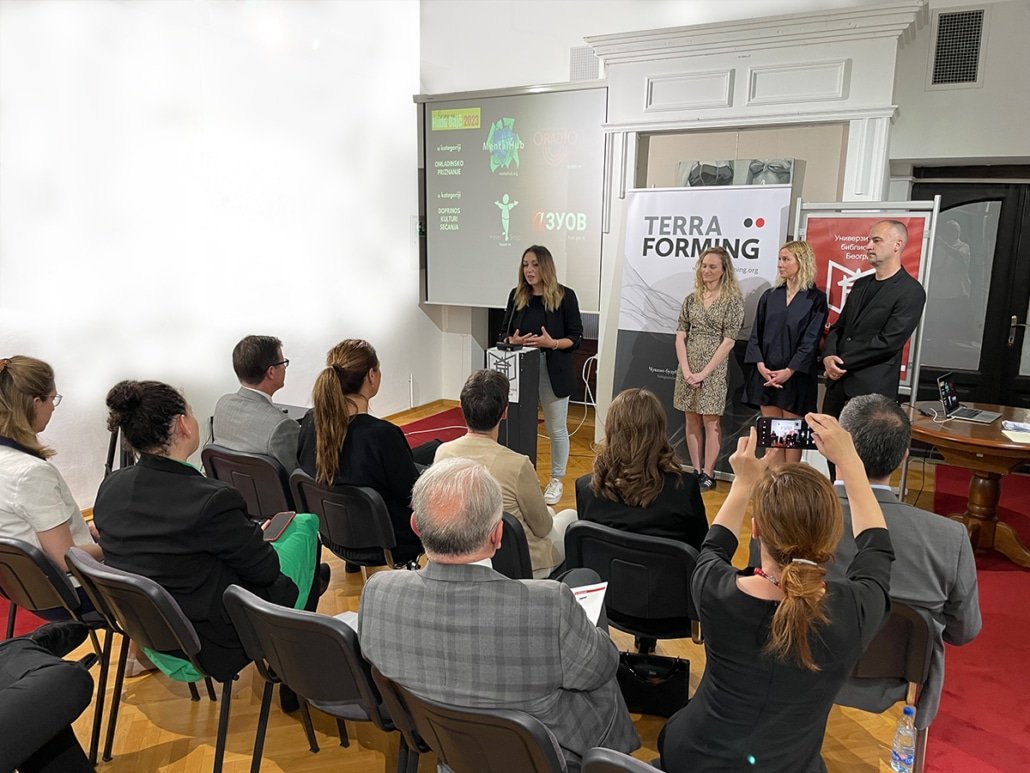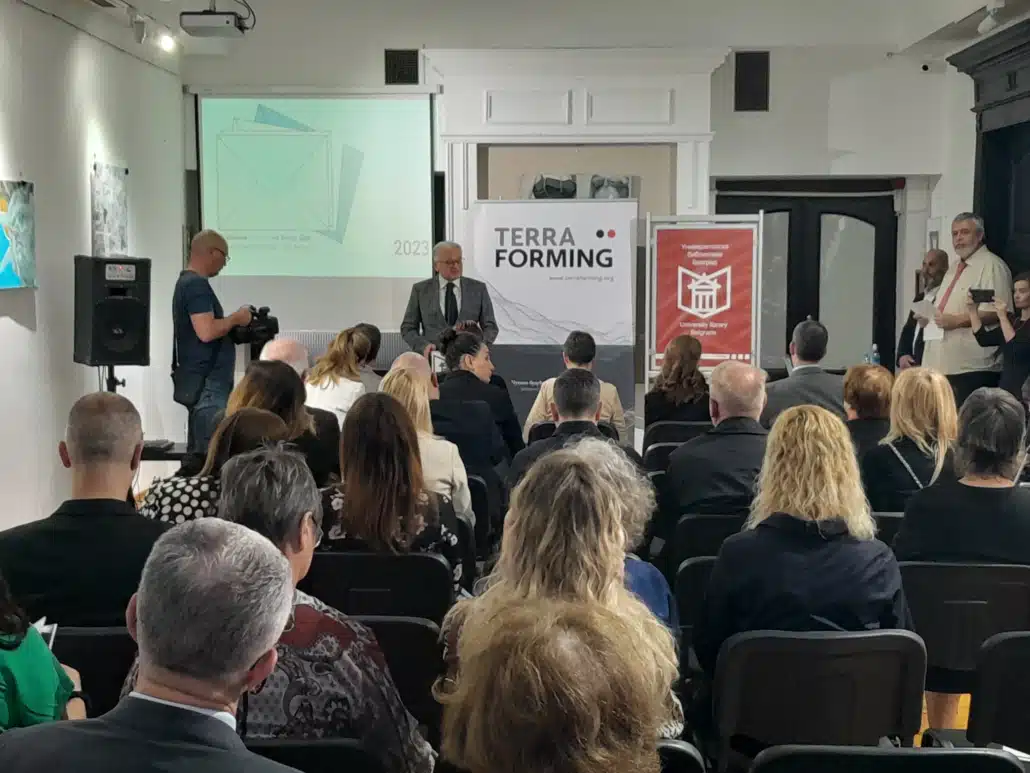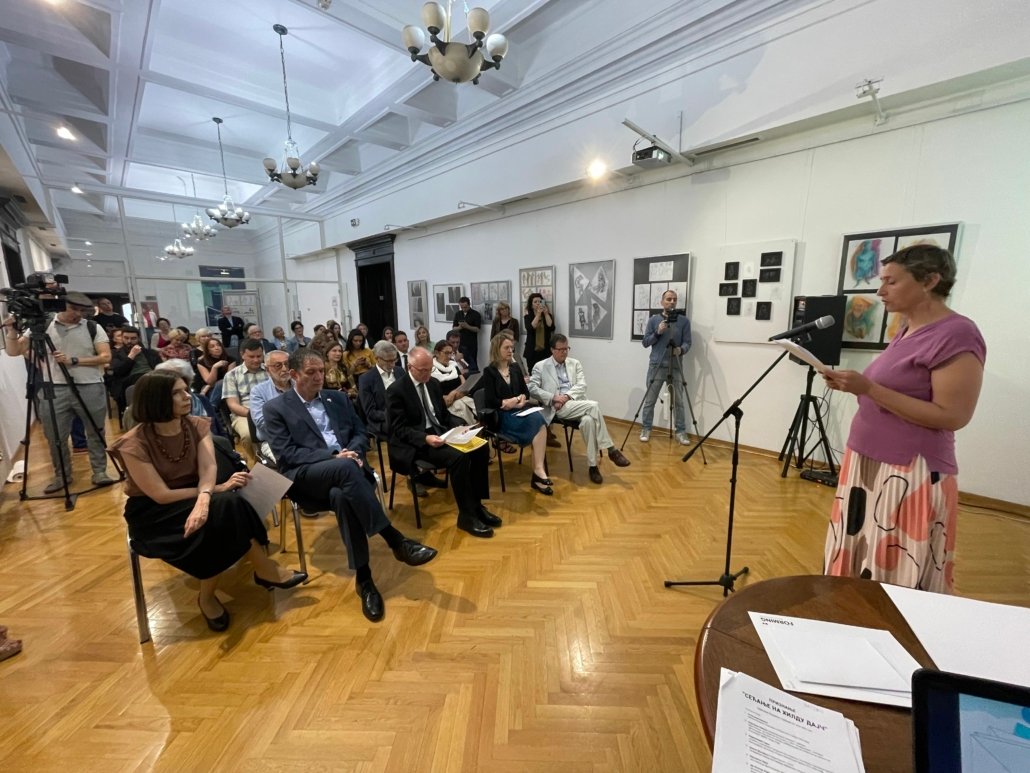Who is Hilda Dajč?
Hilda Dajč was born in 1922 to an affluent Ashkenazi Jewish family, which included her parents, Emil and Augusta, and younger brother Hans. Before the war, having graduated from High School as one of the top students of her generation, Hilda enrolled to study architecture at the University of Belgrade. After her studies were interrupted by the invasion of Yugoslavia by Nazi Germany in April 1941, Hilda volunteered as a nurse at the Jewish hospital in Belgrade. Hilda’s father, Emil Dajč took on the role of Vice-President of the Vertretung der Judischen Gemainchaft, the Representative Body of the Jewish Community in Belgrade. In December 1941, after most of the country’s male Jewish population were killed as part of the retaliatory executions (Geiselmordpolitik) carried out by the Wehrmacht in response to the uprising in Serbia, the Jewish women and children were taken to the newly established Judenlager Semlin, also known as Staro Sajmiste. Although families of the leadership of the Jewish Representative Body were not obliged to comply with this order at the time, Hilda defied her parents’ wishes and volunteered to go to the camp and work as a nurse in the camp’s infirmary. Her family, too, was sent to the camp a few weeks later.
Hilda wrote four letters from the camp to her two Serbian girlfriends. These letters, a rare testimony about life in the camp, are saved. Sometime between April and May 1942, Hilda was killed together with all of the 6500 Jewish inmates in a gas van – a mobile gas chamber. On May 10, 1942, the last group of Jews in the concentration camp of Judenlager Semlin (Staro Sajmiste) was killed. Soon after, Berlin was informed that “Serbia ist Judenfrei.”
In 2014, the Belgrade City Assembly decided that the 10th of May would be the Remembrance Day for the Holocaust Victims in Belgrade.
The Remembering Hilda Dajč Award in Serbia
After the initiative of Terraforming, Edukacija za 21 vek and a group of activists in 2022, marking the 80th anniversary of the murder of Jews in the Staro Sajmiste concentration camp, we established the Remembering Hilda Dajč Award as an independent civil society initiative.
This annual national award is presented in two categories:
- The Youth Award,
- The Outstanding Contribution to the Remembrance Culture Award.
There is also the “Youth Voice” award to the winner of the most votes from the youth.
The process starts each year on December 8, the date when, in 1941, Belgrade Jews were taken to Judenlager Semlin. Then, we announce the next year’s award and invite the public to propose their suggestions for nominees (via our website). Also, we announce the jury for that year. It consists of two well-known and respected public figures, two representatives of last year’s awardees (one from each of the two categories), and one representative from the Remembering Hilda Dajč board. The jury will decide the winners in April. The Award Ceremony takes place a couple of days before May 10, the Remembrance Day for the Holocaust Victims in Belgrade, which marks the day when the last victims of Judenlager Semlin were killed in 1942. The award is presented at the ceremony in the University Library of Belgrade.
We already had two Award ceremonies – 2022 and 2023. Since 2022, the event is well covered by the media and representatives of the Jewish community, ambassadors and diplomatic representatives of Germany, Israel, Austria, France, Sweden, Canada, Norway, the US, EU, and other international organizations, as well as Serbian activists, and ordinary citizens, participated in the award ceremonies.
Unfortunately, until now, no officials from the Serbian Ministries or the City of Belgrade have attended the ceremony.
The award has already gained significant respect among memory culture professionals and activists. The awardees proudly present that they have been awarded the “Hilda Dajč Award” on their websites and at conferences – which is precisely what hoped for.





